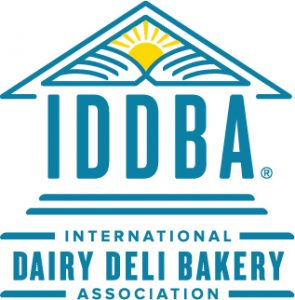Dennis Schaardt Inducted Into Cured Meats Hall of Fame
During its annual convention in Omaha, the American Association of Meat Processors elected the newest member into the Cured Meats Hall of Fame. The 2024 inductee is Dennis Schaardt, president/CEO/COO of Den’s Country Meats in Table Rock, Neb.
At just 19 years old, Schaardt bought the meat locker from a relative in October 1985. He was the youngest of three boys, and the farm could not support all of them. He took a leap of faith to join a business he knew little about and grew it to the success it is today. He started in a small shop on the square in Table Rock.
In 1996 he built a new plant, becoming one of the first plants in Nebraska to fall under USDA inspection. Den’s Country Meats continues to grow. The company has expanded its slaughter floor and added a sweat cooler, and Den’s is getting ready to add on more freezer space and a packaging room because of the increase in business.
During its 39 years in operation, Den’s Country Meats has done exceedingly well in state, national and international competition. The company has won more than 500 awards from the Nebraska Association of Meat Processors cured meats competition. Den’s has won the Sweepstakes Award, the top overall achievement in the NAMP competition, in 2023 and 2024. Additionally, he has won more than 40 awards at the American Cured Meat Championships. In 2022, Den’s entered 48 products into the IFFA Quality Competition, hosted by the German Butchers Association, and won 45 gold medals and 3 silver medals.
Schaardt has always seen the importance of serving the meat industry. He served on the AAMP Board of Directors from 1990-1997 and 2003-2010 and was the association’s president in both 1996 and 2009. Schaardt has served on convention planning committees in the past and is presently on the association’s nominating committee. He has been recognized for his service with the AAMP Accomplishment Award in 1996, the AAMP Outstanding Service Award in 2007, and the AAMP Achievement Award in 2019.
In 2006, Schaardt and his wife, Kim, were recognized with the NAMP Service Award. He has also received the AAMP Golden Cleaver award for recruiting the most new members. Schaardt has been asked to judge many State Competitions over the years including shows in South Dakota and Missouri.
Schaardt has served as president of the 4-H Council and Pawnee County Agricultural Society, and he continues to serve as Table Rock Volunteer Fire Department’s Chief, a role he has held since 1990. He served as mayor of Table Rock for many years and as a County Commissioner for three terms. He is running to serve as a Nebraska state senator. Schaardt coached little league football for eight years, little league girls’ basketball for two years, and was a 4-H club leader for fourteen years.
For more news of interest to the cured meat industry, subscribe to Gourmet News.
Smithfield Foods, Mercy Chefs Aid Flooding Victims in Iowa
 Smithfield Foods delivered 34,000 pounds of protein to Rock Valley, Iowa, to provide free, restaurant-quality hot meals to victims, first responders and volunteers impacted by severe flooding across Northwest Iowa.
Smithfield Foods delivered 34,000 pounds of protein to Rock Valley, Iowa, to provide free, restaurant-quality hot meals to victims, first responders and volunteers impacted by severe flooding across Northwest Iowa.
As a local employer with more than 600 employees in nearby Sioux Center and Orange City, Iowa, Smithfield delivered the protein donation today to Mercy Chefs, a Portsmouth, Va.-based nonprofit that deploys to disaster zones across America. Donated food items included loins, ribs and pork chops, and will provide over 140,000 servings of protein.
“Recent catastrophic flooding has left many of our Northwest Iowa neighbors without basic necessities like electricity, drinking water and food,” said Jonathan Toms, senior community development manager for Smithfield Foods. “By partnering with Mercy Chefs, we’re able to provide support and hope for our neighbors in critical times of need as the community continues to recover from storm damage.”
Mercy Chefs’ mobile kitchen and smoker will be serving restaurant-quality meals in Rock Valley, Iowa, to anyone in the community in need. The team will also distribute meals to those unable to make it to the base of operations. To donate or find out how to volunteer locally, visit mercychefs.com/donate-iowa-flooding-response.
“As we respond to the heartbreaking disaster in Iowa, we are incredibly grateful to Smithfield Foods for standing with us,” said Chef Gary LeBlanc, founder and CEO of Mercy Chefs. “Their support enables us to provide thousands of high-quality, chef-prepared meals to those suffering through this crisis.”
Smithfield’s hunger relief program, Helping Hungry Homes, has provided hundreds of millions of servings of protein all 50 U.S. states, as well as in Poland, Romania and Mexico, since 2008. Smithfield donated nearly 28 million servings of protein to food banks, disaster relief efforts and community outreach programs across the U.S. in 2023 and has pledged to donate 200 million servings of protein by 2025.
For more information about Smithfield’s programs to support local communities, please visit smithfieldfoods.com/helping-communities.
For more news of interest to the meat and poultry industry, subscribe to Gourmet News.
IDDBA, ACS Team Up to Offer Salumiere Certification Exam
|









